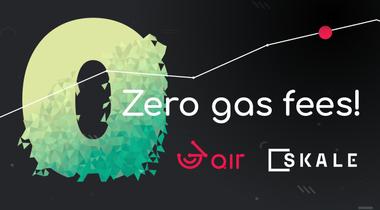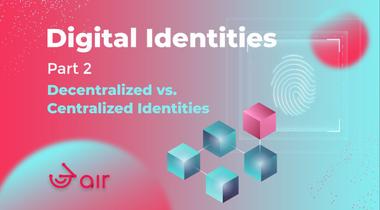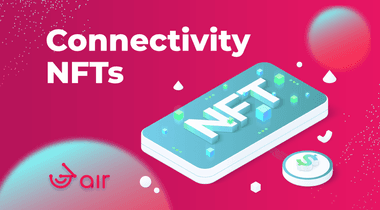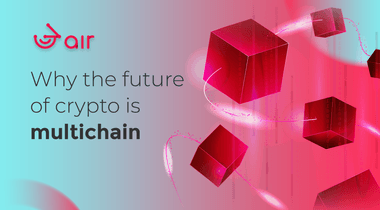Table Of Contents
There have been a lot of questions regarding SKALE network and rightfully so. There are always tradeoffs when you decide on a chain, and we’ll try to explain our choice in a few upcoming articles. There are lots of good thing about SKALE but there are some disadvantages that we will also point out and propose our solution to them.
Zero cost gas-fees
As a first, let’s talk about the transaction costs that for sure are a top priority, and for 3air even more so as we will be providing real world services and the platform should make it easier and cheaper for the end user to acquire his desired subscription. This is why we are not building on Ethereum directly, right?!
We are providing services that will cost below the $100 mark, meaning that TX gas fees can quickly become a big part of the total service cost. This then unnecessarily raises the end price for the user and eats heavily into the company’s profit. Having as low gas fees as possible was a priority for us.
SKALE offers zero end user gas fees. This doesn’t mean that no one is paying for transactions to be processed. In the SKALE network each project gets it’s own blockchain and the projects pay a yearly lease that goes towards staking rewards for validators. There will be a question popping up about how much the yearly fee is and I can just tell you that for 3air, because of the importance of the project and it’s mission, this fee is free, thanks to a grant from SKALE.
So effectively this means that on 3air, no one will be paying any transaction fees whatsoever. Correct me if I’m wrong but it doesn’t get any better than this unless someone is paying you to make transactions (please let me know if such a project exists, I’ll gladly spam a bit TXs there). Our number one concern about not increasing subscription costs for the end user through transaction fees is effectively solved with SKALE.
Security considerations in zero fee environment
There are other questions arising from this model. One of the most important ones is, does this imply any security risks. We have heard some project, especially the ones with the lowest transaction fees, being overloaded by spammy transactions in a blockchain version of a DDoS attack (Distributed Denial-of-Service). This happens when a hacker sends millions of trivial transactions on the blockchain at once and overloads the nodes that are processing them, bringing the whole chain to a standstill. High gas fees prevent such attacks because they would cost the attacker millions of dollars. When there are no gas fees involved, a malicious player would theoretically be able to post transactions constantly, rendering the chain useless.
The role of sFuel
There are two mechanisms with SKALE preventing this and one is processed on the node level, where transactions can be identified as spam automatically and prevented from being executed at all.
And the other mechanism actually involves a gas fee. But we said there are not gas fees, right? Not exactly, there is a gas fee, but it’s free. Let us explain.
To make a transaction on the SKALE network you will need a token called sFuel that is being distributed for free. Each user get’s an amount of sFuel when joining the network and can be replenished in reasonable time intervals. On the other hand, if a user starts spamming the network with lots of useless transactions, he will sooner or later run out of sFuel. And without it he can’t post any more transactions, effectively preventing the overloading of the whole chain. It’s a really smart and easy solution for a big problem in the blockchain space.
Cross-chain fees
It’s also important to note that communications between different projects/chains within the SKALE ecosystem are also zero gas-fee, and with the V2 mainnet upgrade in March are becoming easy and supported natively. This will also provide a great basis for a DEX that up until now was limited with the liquidity only provided to the chain itself. Ruby Exchange will be the firs DEX to utilize zero gas-fees and zero cost NFT minting.
3air will be able to therefore use a zero gas cost token swaps directly form the platform. Another feature that will be welcomed by all the traders.
3air, as all other SKALE tokens are ERC20 based tokens. There is a native bridge provided, that bridges tokens to Ethereum Mainnet. Unfortunately, that will incur regular fees on the Ethereum network once you move the token. There’s nothing SKALE can do about that once the token is off their blockchain. But transactions within the SKALE ecosystem are gas-free.
The bridge does work both ways so once you are back on the SKALE network you can again enjoy the feeless transaction environment.









